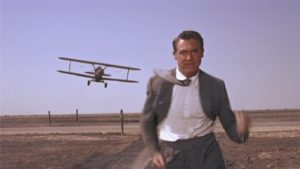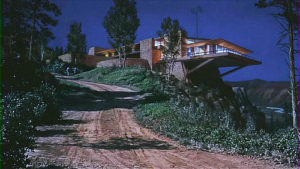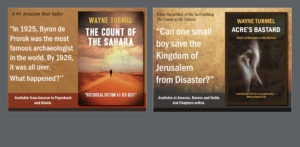Every historical fiction fan has their pet periods. I will confess (and this is probably the Canadian in me- it was a seminal event in Canadian history and we were literally knee deep in it pretty much from day one. Plus, find one current world mess that doesn’t intersect with it somewhere) the First World War is a real obsession. So, when I find other writers working in that period it’s a happy day in my world. Enter Jeffrey K Walker, and his new novel, “None of Us the Same.”
Jeffrey is an impressive cat, and I’m looking forward to reading the book.
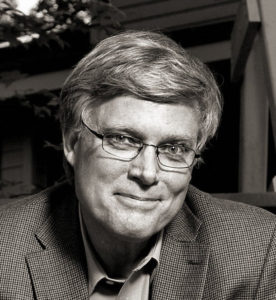
JEFFREY K. WALKER is a Midwesterner, born in what was once the Glass Container Capital of the World. A retired military officer, he served in Bosnia and Afghanistan, planned the Kosovo air campaign and ran a State Department program in Baghdad. He’s been shelled, rocketed and sniped by various groups, all with bad aim. He’s lived in ten states and three foreign countries, managing to get degrees from Harvard and Georgetown along the way. An attorney and professor, he taught legal history at Georgetown, law of war at William & Mary and criminal and international law while an assistant dean at St. John’s. He’s been a contributor on NPR and a speaker at federal judicial conferences. He dotes on his wife, with whom he lives in Virginia, and his children, who are spread across the United States. Jeffrey has never been beaten at Whack-a-Mole.
I’ll put my doting on my wife up against his any day of the year. Other than that, he is just a better man than me in pretty much every way, which is incredibly annoying. That said, I still summoned enough self-esteem to ask him some questions.
In a nutshell, what’s the book about?
The book tracks the experiences during and after the First World War of three main characters. Deirdre Brannigan, who adds new meaning to ‘headstrong,’ is an Irish nurse from working-class Dublin, while affable Jack Oakley and complicated Will Parsons are childhood pals from St. John’s who enlist in the Newfoundland Regiment the day it’s formed in August, 1914. Deirdre joins a military nursing service after her father and brother hit the beach at Gallipoli. All three of their paths cross at Deirdre’s field hospital the first day of the Somme. Each of them suffers terrible and varied trauma from the war. The second half of the book returns to Newfoundland as they come to a reckoning with their self-pity, addictions, and emotional devastation. A big part of the healing process involves overlapping romantic and business relationships, not all of them entirely legal.
What is it about that time period or character that intrigued you and motivated you to write about it?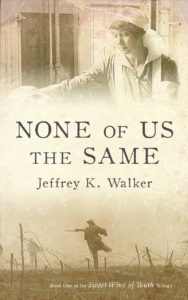
Well, Deirdre Brannigan is, in hindsight, an unconscious and dead-on composite of all the strong Irish-American women I grew up with—mother, aunts, grandmother, great aunts and cousins. Write what you know, right? I’ve been attracted to the First World War since I was a kid, much more so than World War II, which may sound odd coming from an American. The Great War was the first full-blown industrialized conflict fought by the world’s greatest economic powers with enormous conscript armies and rapidly evolving technologies. What no one really foresaw was the unimaginable level of violence, that if we could mass produce Model T’s and light bulbs, we could also mass produce death and destruction. Since at its heart None of Us the Same is about how war changes everyone and everything, World War I dovetailed nicely in my mind. Of course it’s also the centenary of the War, which we Americans just started commemorating 6 April 2017, being Johnny-come-lately as we were.
The other reason is, well, because I’m a coward. I wanted to write about the very timely subject of returning from the devastation of war—think Iraq and Afghanistan—but couldn’t quite bring myself to set the story present day. Besides the current over-politicized narrative around those two ongoing conflicts, I got the creeping sense I was appropriating the stories of these young men and women much too soon after the fact. As a retired Air Force officer, I was keenly sensitive to this. On the other hand, this also makes None of Us the Same historical fiction that deals with very contemporary issues.
Without giving away spoilers, what’s your favorite scene or event in the book?
Wow, tough question—and I know every writer has that same reaction, having created so many darlings, after all. I’m partial to the very first scene, set in Deirdre’s charity hospital where she’s dealing with a young trainee’s rather unique problem with, shall we say, man parts. The scene is interrupted by the rising peal of church bells all across Dublin as the declaration of war is announced. There are three scenes throughout the book set at a lighthouse kept by Jack’s uncle that were a guilty pleasure to write, the Newfoundland seacoast being so remarkably beautiful. There’s a scene early in the book when the pals meet their new company sergeant-major that’s a wry twist on the crusty old drill sergeant and all of my early readers loved Sergeant-Major Pilmore. Later in the book, there’s a fine (and pivotal) scene along the waterfront during “fish making”—the production of salt cod which was the economic mainstay of Newfoundland until the fisheries collapsed in 1992, ending 500 years of tradition.
But if I had to pick, I’d say my favorite scene is Will’s experience on the first day of the Somme. You can’t make up a more atrocious battle scene than the reality of the Somme on 1 July 1917. The British had 20,000 men killed just that morning, the Newfoundland Regiment suffering over 90% dead, wounded or missing. It’s almost unimaginable at a macro level, so I tried to show the abject horror of that day through one young man’s experience. And it’s plenty horrible, believe me. (If I can butt in, I’d put it up against the battle of Passchendaele where nearly half the dead drowned in mud…. but why pick nits?)
Where can people find you and your book?
I’d welcome them first and foremost at jeffreykwalker.com. Sign up to receive my latest news and I’ll happily send you a fun piece on sayings that originated during the Great War. Many fans have read it and said, “I didn’t know that!”
Also, follow me on:
Twitter https://twitter.com/JkwalkerAuthor
Facebook at www.facebook.com/jeffreykwalker
Instagram @jkwalker.author
Goodreads at https://www.goodreads.com/author/show/16863722.Jeffrey_K_Walker
None of Us the Same is available on Amazon at amzn.to/2qvJSJm.

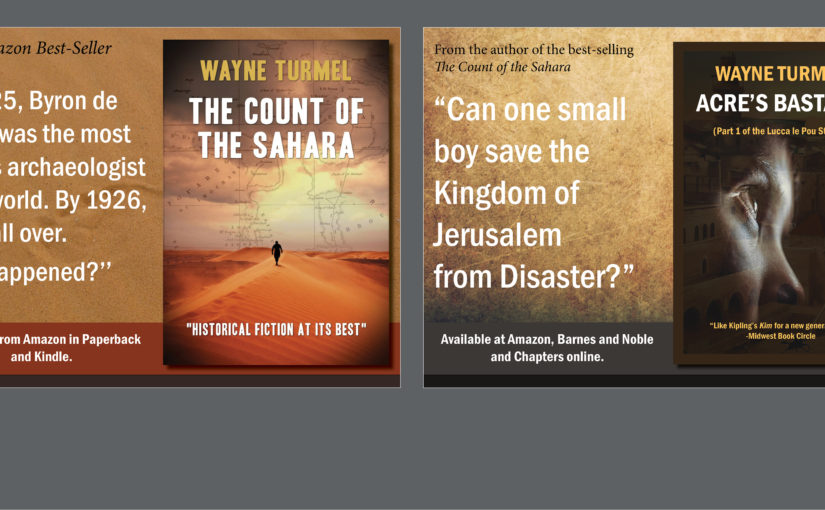
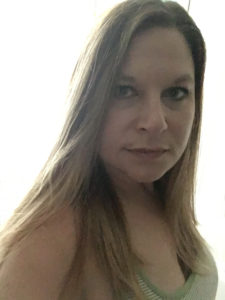
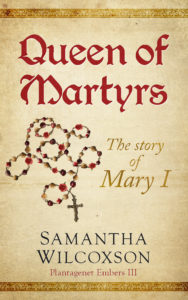
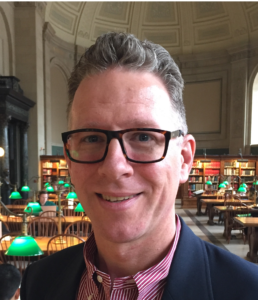
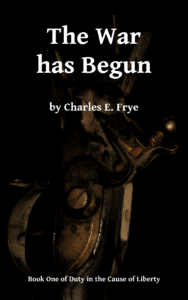
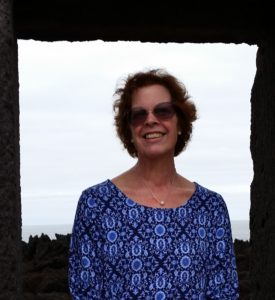
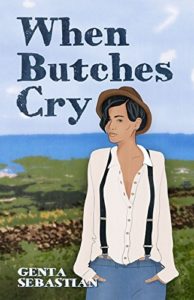 When Butches Cry takes place in the middle of the twentieth century when a twist of nature creates an unusually high number of young lesbians on a Portuguese island in the Atlantic Ocean. Whilst this might sound exciting to some of the men reading this, it is not as amorous as it first sounds. If you’re looking for that sort of thing, maybe you should
When Butches Cry takes place in the middle of the twentieth century when a twist of nature creates an unusually high number of young lesbians on a Portuguese island in the Atlantic Ocean. Whilst this might sound exciting to some of the men reading this, it is not as amorous as it first sounds. If you’re looking for that sort of thing, maybe you should 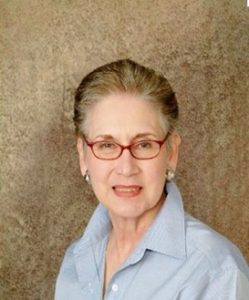 My life is a little more sedate than that of my characters.
My life is a little more sedate than that of my characters.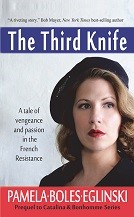 The novel begins in 1943. In the chaos of war, Charlotte is unable to find her aunt, and in desperation searches for a childhood friend, Edouard Bonhomme. He now leads a band of French Maquis—a subset of the Resistance. She embraces their mission . . . one of espionage, subterfuge, and guerilla warfare. Set on the French Riviera, this rag-tag team of spies sets out to defeat the Germans—focusing on the Gestapo.
The novel begins in 1943. In the chaos of war, Charlotte is unable to find her aunt, and in desperation searches for a childhood friend, Edouard Bonhomme. He now leads a band of French Maquis—a subset of the Resistance. She embraces their mission . . . one of espionage, subterfuge, and guerilla warfare. Set on the French Riviera, this rag-tag team of spies sets out to defeat the Germans—focusing on the Gestapo.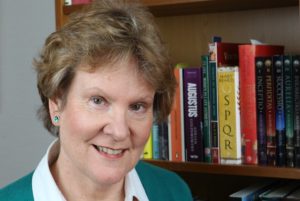 That’s where alternative history comes into play, which eventually leads us to Alison Morton’s “Roma Nova” series, and her latest installment, “Insurrectio.” Not only does it ask “what if the Empire survived until today?” It also plays with roles of gender and class.
That’s where alternative history comes into play, which eventually leads us to Alison Morton’s “Roma Nova” series, and her latest installment, “Insurrectio.” Not only does it ask “what if the Empire survived until today?” It also plays with roles of gender and class.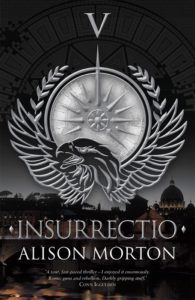

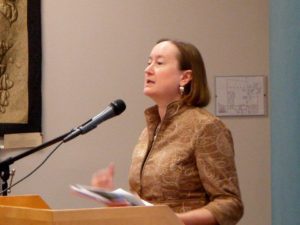 I met Theresa through our mutual participation in the
I met Theresa through our mutual participation in the 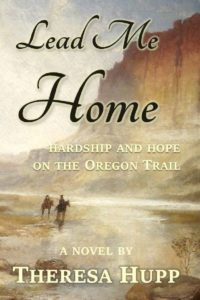
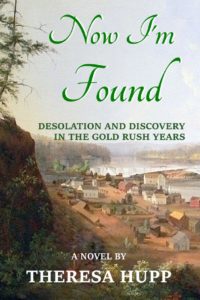
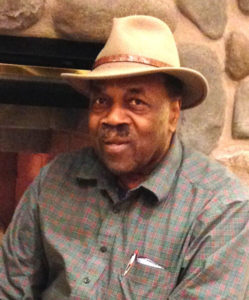
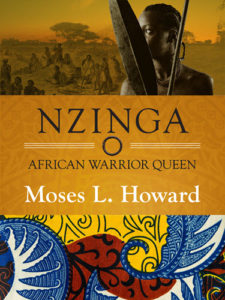 What is it about that time period and character that appealed to you most?
What is it about that time period and character that appealed to you most?
